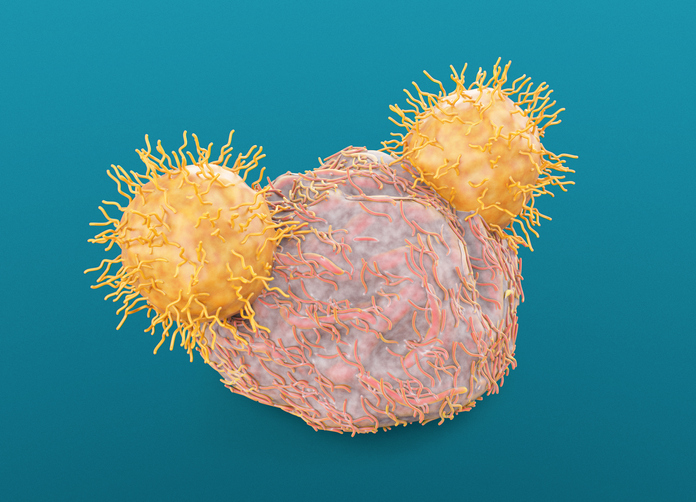A French company is seeking to solve one of the biggest challenges in the emerging cell therapy industry by commercializing an automated system for manufacturing CAR-T at scale.
CellQuest, who has recently shared their technology with early-access users, believes their mini-factory can help contract manufacturers reduce costs while scaling-out CAR-T therapies.
“Producing CAR-T cells at scale is one of the challenges to manufacturing these life-changing therapies,” says Dominique Yon, head of business development at CellQuest, in an exclusive interview with GEN.
“The industry is still in its infancy, but we’re expecting demand to increase in the years to come.”
Current CAR-T therapies typically cost from $500,000 to £1,000,000 to treat a single patient, with the production of these patient-tailored medicines, making it a significant factor.
CellQuest claims they’ve developed an automated system that can manufacture 6,000 CAR-T doses a year in less than 300 square feet of space. The company says this is 30 times the throughput of typical production today, and at a much lower cost.
According to Yon and CellQuest CEO, Guillaume Wallart, CellQuest’s technology consists of a unit about the size of a fridge, which can take up to 15 trays that work like mini production units.
Each tray contains a single patient dose and has a pouch with compartments where all critical CAR-T production steps, including cell sorting, selection, transduction, and expansion can take place.
The entire process is automated and delivered via a metal structure with clamps that can, for example, open and close compartments within the pouch or agitate the cells during culture.
The pouch is connected, sterilely, to four cartridges containing pre-filled and pre-dosed ingredients for the manufacturing process, such as microbeads for cell selection.
The sterile connection takes place automatically within a minute, they explain, at high temperatures inside another small machine. The pouch and cartridges, they added, are RFID labeled for traceability between the first and second units.
According to Yon, the company has gone for well-established technologies in developing their micro-factory, which, they claim, makes them unique in this emerging area.
“We went for technologies that are simple, compact, tried-and-tested, and nothing that hasn’t been used in the past,” he tells GEN.
“We’re the only company [among our competitors in this emerging area] that has a cartridge to minimize risk and optimize the process—so, in that sense, we’re scalable, safe, and robust.”
The pouch, he adds, is made of a standard medical material. It’s also transparent, allowing two traditional microscopes to monitor the process and do a cell count.
“It can tell you the speed of expansion,” he says. “And, by the second day, we already know when we’ll reach the [desired] dose.”
The company is also working on a fill-and-finish machine and hopes to have a prototype ready by the end of the year.


